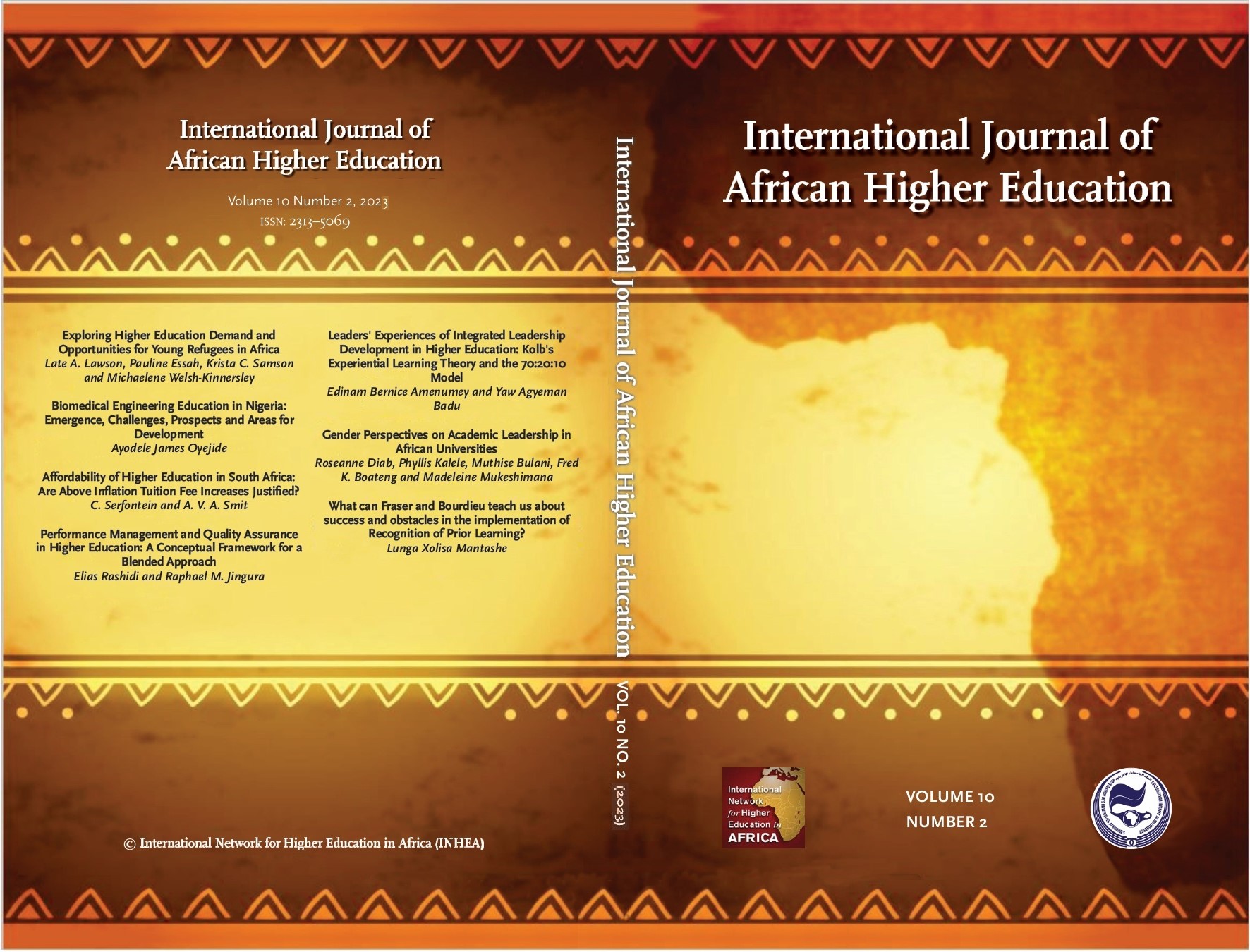What can Fraser and Bourdieu teach us about success and obstacles in the implementation of Recognition of Prior Learning?
DOI:
https://doi.org/10.6017/ijahe.v10i2.17623Keywords:
Recognition of Prior Learning, habitus, agency, social justice, parity of participationAbstract
Despite the adoption of Recognition of Prior Learning (RPL) policies, its implementation lags behind, remains un-coordinated and lacks institutional support. The key issues underlying these challenges include knowledge contestation and gatekeeping in the form of resistant cognitive structures in defence of the intellectual foundations of university knowledge. This article weaves the theories of Fraser and Bourdieu together to analyse the literature on RPL policy, pedagogic agency and practice in order to deepen understanding of RPL’s success and obstacles. Fraser’s notion of parity of participation is useful in that it theorises how adherence to social justice principles to promote RPL implementation can be created in the academy. Bourdieu’s work facilitates interrogation of the habitus, and social and cultural capital of RPL practitioners in relation to the habitus of academics, and how these impact the crossing of knowledge boundaries via RPL as a specialised pedagogy. The article concludes that successful RPL implementation requires, inter alia, that attention be directed to honing the class habitus of the academy as a whole, including adequate theorisation of the conditions necessary for the existence of pedagogic agency within the context of the prevailing knowledge difference discourse.
Downloads
Published
How to Cite
Issue
Section
License
Copyright (c) 2024 Lunga Xolisa Mantashe

This work is licensed under a Creative Commons Attribution-NonCommercial-NoDerivatives 4.0 International License.

